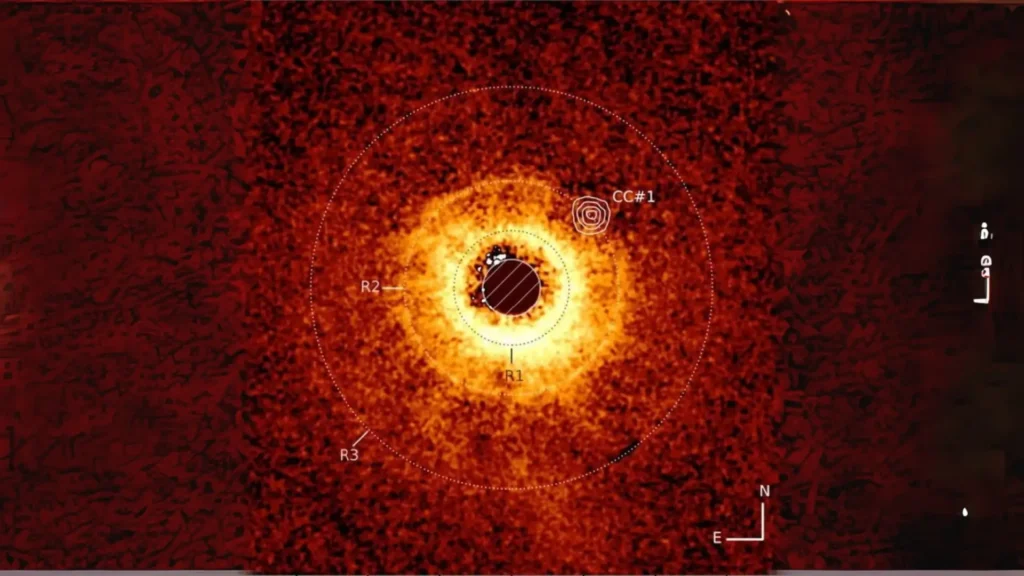Major Discovery
- For the first time, NASA’s James Webb Space Telescope (JWST) has discovered an exoplanet — a planet outside our solar system — that was not previously known.
- The planet is a young gas giant similar in size to Saturn.
Where & What
- The planet orbits a star named TWA 7, located 110 light-years away in the Antlia constellation.
- It orbits its star at 52 times the distance between Earth and the Sun — much farther out than Neptune.
How It Was Found
- Webb directly imaged the planet using a French coronagraph attached to its Mid-Infrared Instrument (MIRI).
- This planet is now the least massive ever directly imaged — 10x less than the previous record holder.
- Only <2% of known exoplanets have been directly imaged; most are found through indirect methods like transits.
Scientific Importance
- This expands the range of planetary mass and distance observable with JWST.
- Helps scientists study planetary formation and system evolution.
- Provides new insights into young planetary systems (this one is only 6 million years old).
What’s Next?
- Future Webb observations may reveal the planet’s atmospheric composition.
- Researchers are exploring whether the planet is still gaining mass from surrounding material.
Limitations
- Despite its power, JWST still cannot directly image Earth-sized rocky planets (Webb Telescope), which are better candidates for life.
Astronomers hope future tech will allow for direct imaging of Earth-like planets and potential signs of life.
Read More : Meta’s Bold AI Power Play: Key Highlights & Get best deal on mCaffeine Coupon Code .
